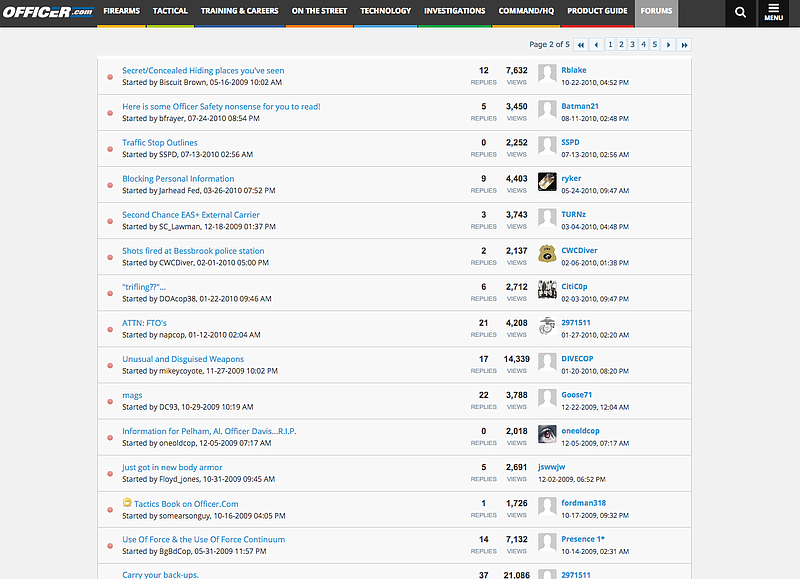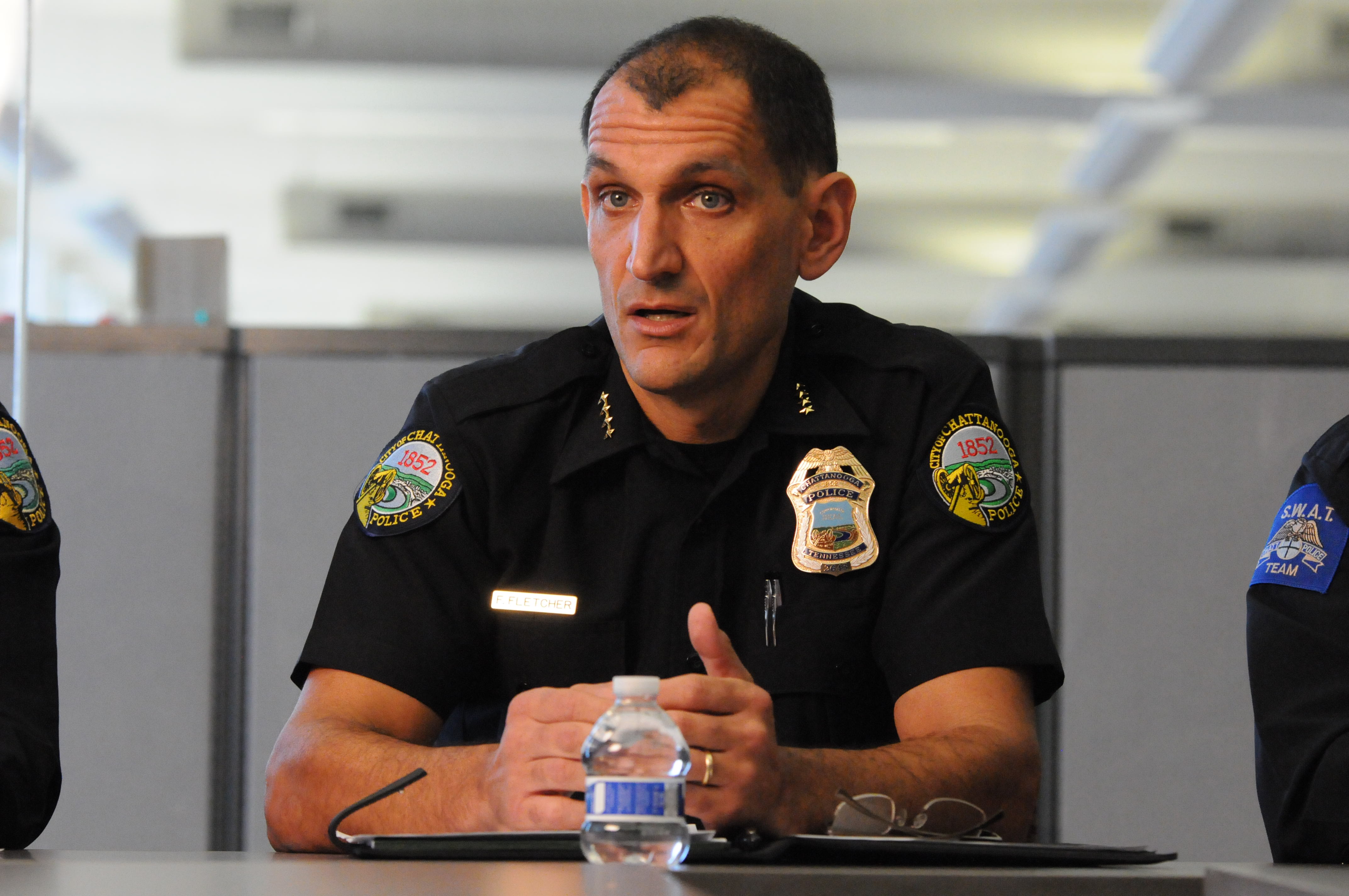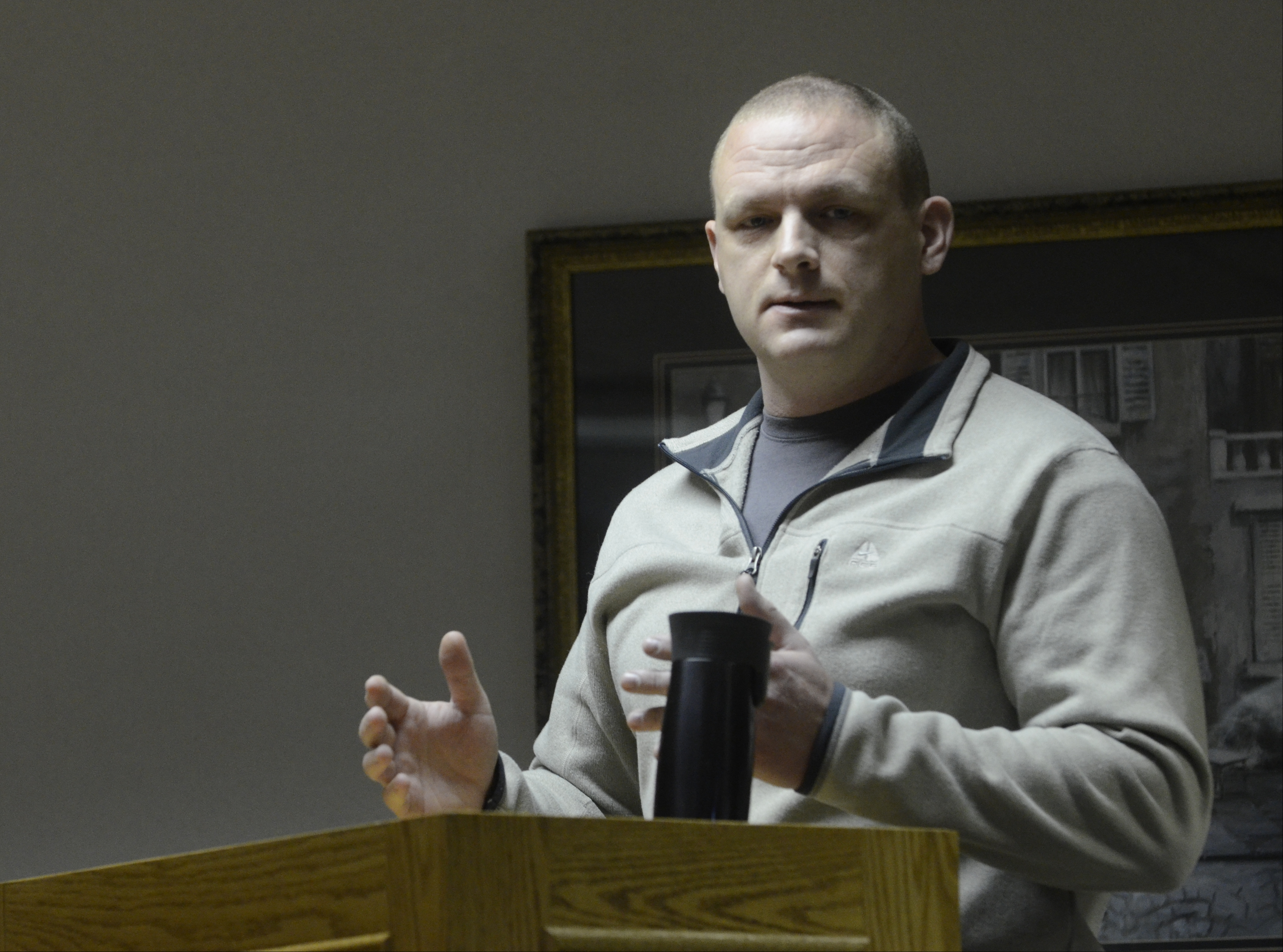In December 2014, a Chattanooga police officer rebuffed a local activist's Facebook criticism by arguing that because the man had never been a police officer, he had no right to complain.
Turns out, that's been a common argument among officers online in a post-Ferguson United States, according to a new report by a San Francisco consulting company.
The company, Monitor 360, analyzed 3,000 public posts on the website officer.com between December 2014 and January 2015 and discovered that 33 percent of them included some sort of notion that average civilians have no idea what it takes to be a police officer and that "civilians just don't get it."
The report identified five major narratives among the posts, including the idea that there is an anti-cop bias in the media, that race-baiters are manufacturing conflict and that officers are targets and need to be prepared.
In all, about two-thirds of all posts on the website -- where posters can self-identify as officers but aren't required to prove they are officers to comment -- were defensive and frustrated, according to the report.
About 2 percent of posts suggested that police departments have a "real problem" and need to change.
"What we're mostly seeing is an insular profession that views itself as misunderstood by outside actors or actively mischaracterized by media figures or politicians," said Tucker Fross, a consultant at Monitor 360.
The company studied the website in the wake of citizen-police clashes across the United States with the goal of discovering how officers were responding to the newfound national debate, Fross said. They chose officer.com because it is focused toward officers and sees more than a million unique monthly users.
The narrative that the report found most often -- civilians don't get it -- has already cropped up in Chattanooga. In December, Officer William Puckett wrote similar comments on Facebook to local activist Chris Brooks.
"Other than television do you have any real life experience?" the officer wrote. "I doubt it."
Later he added, "Real men work, b----s cheer from the sidelines."
After those comments, Chattanooga Police Chief Fred Fletcher launched an internal affairs investigation into Puckett to see whether he violated the department's social media policy. Many officers bristled, concerned about their rights to free speech and privacy -- especially after Brooks filed an open records request for all of Puckett's work-related text messages during the last two years.
That investigation is still active.
Narratives discovered in posts on officer.com
* 33 percent -- Civilians don't get it* 31 percent -- Meaningless conversations where no deeply held beliefs were expressed* 13 percent -- Anti-cop bias* 11 percent -- Officers are targets* 10 percent -- Race-baiters are to blame* 2 percent -- There's a real problem with police departments Source: Monitor 360
Fletcher said he doesn't often see the civilians-don't-get-it attitude among his officers, but emphasized that he actively enforces the department's social media policy, which requires officers to act in a manner that reflects "favorably" on the department both on and off duty.
"In Chattanooga, unlike many other places, when officers do violate a standard that we set, we will hold ourselves accountable," Fletcher said.
Sean O'Brien, president of the Fraternal Order of Police Rock City Lodge 22, said the civilians-don't-get-it attitude is nothing new.
"In my 15 years in law enforcement, that's always been a conversation among police officers," he said. "It's always been prevalent among officers, but that's why you see here at CPD we have the citizens police academy and give citizens the opportunity to do ride-alongs with officers to get a better understanding."
He added that any industry is likely to think outsiders don't understand, not just people in law enforcement.
And the report is limited in several ways, said Brian O'Leary, head of the psychology department at the University of Tennessee at Chattanooga. There is no way to verify whether the posters on officer.com are, in fact, police officers, and there is no way to tell whether those posters work in rural or urban departments, are white or black, are on active duty or are retired.
Essentially, it's hard to say whether the opinions of the posters on officer.com actually reflect widespread opinions among law enforcement officers, O'Leary said. Plus, online conversations are by nature driven by current events, he said, and looking at only a quick snapshot of comments doesn't give a clear picture of long-term perspectives.
"Yes, this is what they're talking about, but what does that mean? It reflects what is happening right now," he said. "If there was a different story playing right now, a focus on unfair practices against police officers, or pay and pension or those types of things, then that would probably dominate the conversation."
But Fross said major events like Ferguson tend to highlight attitudes that already exist, rather than create new ones.
"This was certainly impacted by the conversation that is going on related to police violence, but that doesn't necessarily mean these are views that suddenly came into being," he said. "The way people react to a specific event is informed by the way they view the world in general."
Contact staff reporter Shelly Bradbury at 423-757-6525 or sbradbury@timesfreepress.com with tips or story ideas.


